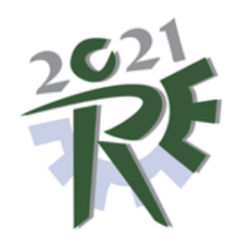OBJECTIVES
A major determinant of the quality of software systems is the quality of their requirements. Requirements must be both understandable and precise. Quality of software systems is to a large extend determined by the quality of their original requirements. Such requirements, typically written in natural language, sometime lack precision. Formal approaches can help in solving the problem: methods and notations already exist as a result of long-term research effort. To achieve precision, researchers have for many years advocated the use of formal approaches to writing requirements. Many requirements methods and notations are available as a result of these efforts and they vary considerably in their style, scope and applicability. Despite of this, industrial application is still limited. This workshop aims at raising fundamental questions, including how remote the current state of the technology is from potential widespread industrial usage of formal methods. The objective is also to focus on existing methods that do have industrial application and identify the reason of their success.
In order to broaden the industrial applications of formal approaches, FormReq brings together practitioners and academics aiming at contributing towards requirements formalisation.
So, the goal of FormReq’21 will be to bring together industrial practitioners (both convinced and skeptical) as well as researchers to discuss the good practices, the remaining challenges, of using formal approaches to express and manage requirements.
In particular, we will focus on the following themes:
- State-of-the-art in formal approaches to requirements
- New ideas and techniques for formal requirements engineering
- Industrial applications of formal approaches
TOPICS OF INTEREST
The goal is to explore the current approaches, but also to update the roadmap for a broader adoption by exploring the limitations, the crucial key problems that remain to be solved. Studies focusing on a better understanding of the industrial success of existing methods are also welcome together with proposal for new techniques and notations.
Here is a non-exhaustive list of topics:
- Constrained natural languages for requirements
- Formal approaches to support traceability
- Adapted formal approaches, frameworks, or processes for requirements
- Domain-specific requirements modeling languages
- Evaluation and comparison of requirements languages, techniques and tools
- Requirements verification & validation
- Pattern matching in requirements
- AI and formal requirements elicitation
- Survey on the state-of-the-art
- Case studies of industrial applications
- Tools and prototypes for formal requirements
- Formal requirements for seamless development

